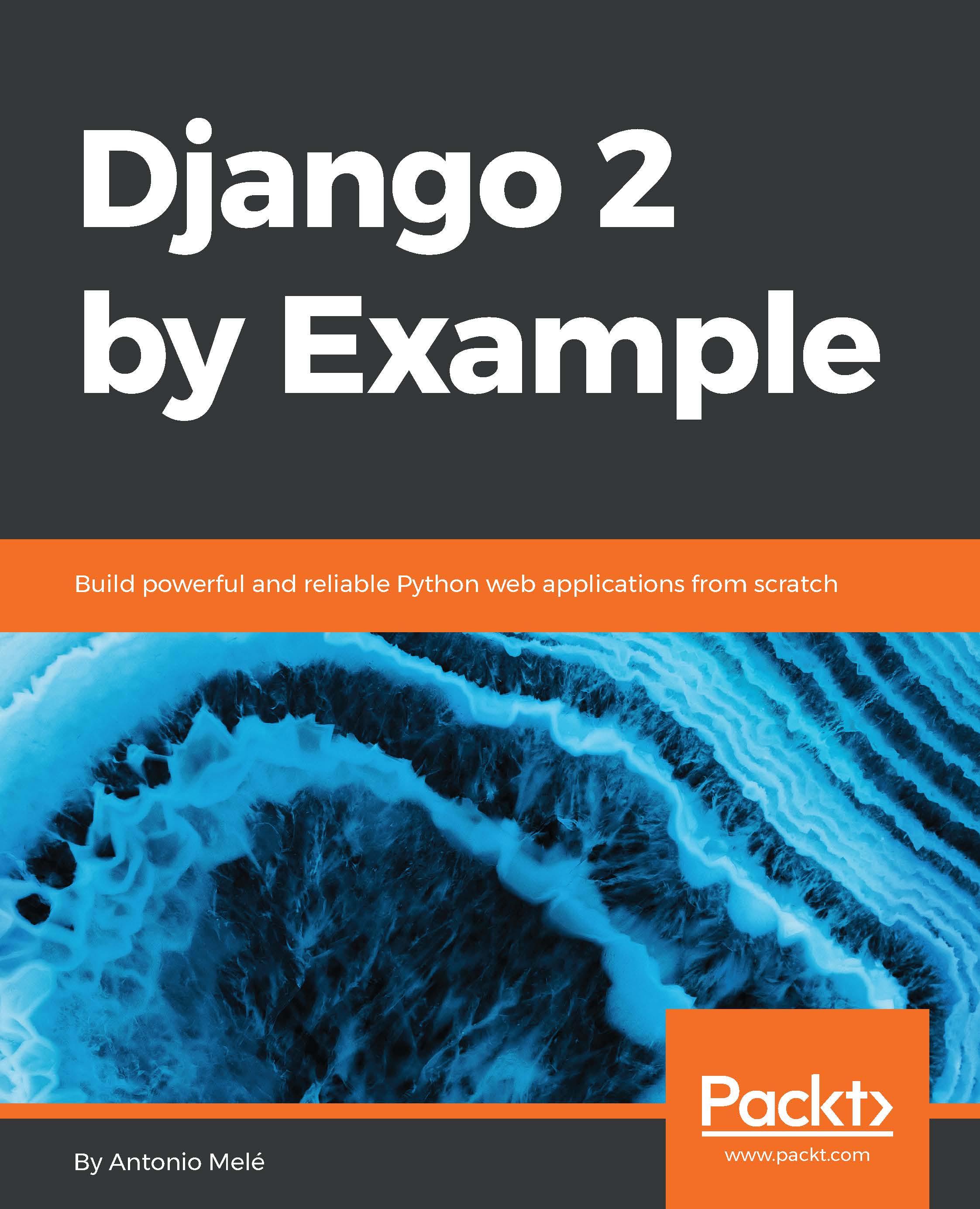Django offers full internationalization and localization support. It allows you to translate your application into multiple languages and it handles locale-specific formatting for dates, times, numbers, and time zones. Let's clarify the difference between internationalization and localization. Internationalization (frequently abbreviated to i18n) is the process of adapting software for the potential use of different languages and locales, so that it isn't hardwired to a specific language or locale. Localization (abbreviated to l10n) is the process of actually translating the software and adapting it to a particular locale. Django itself is translated into more than 50 languages using its internationalization framework.
-
Book Overview & Buying

-
Table Of Contents

Django 2 by Example
By :

Django 2 by Example
By:
Overview of this book
If you want to learn the entire process of developing professional web applications with Django 2, then this book is for you. You will walk through the creation of four professional Django 2 projects, teaching you how to solve common problems and implement best practices.
You will learn how to build a blog application, a social image bookmarking website, an online shop and an e-learning platform. The book will teach you how to enhance your applications with AJAX, create RESTful APIs and set up a production environment for your Django 2 projects. The book walks you through the creation of real-world applications, solving common problems, and implementing best practices. By the end of this book, you will have a deep understanding of Django 2 and how to build advanced web applications.
Table of Contents (15 chapters)
Preface
 Free Chapter
Free Chapter
Building a Blog Application
Enhancing Your Blog with Advanced Features
Extending Your Blog Application
Building a Social Website
Sharing Content in Your Website
Tracking User Actions
Building an Online Shop
Managing Payments and Orders
Extending Your Shop
Building an E-Learning Platform
Rendering and Caching Content
Building an API
Going Live
Other Books You May Enjoy
